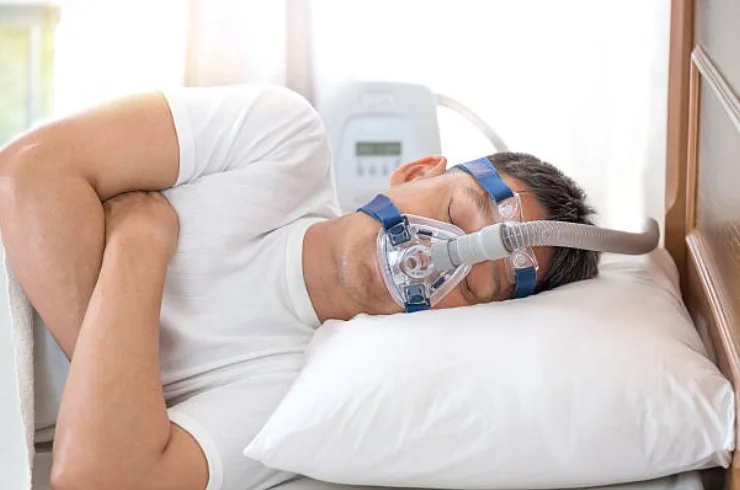Understanding Sleep Apnea & Snoring
Snoring occurs due to the vibration of tissues in the throat, while sleep apnea involves repeated pauses in breathing during sleep. The two main types are:
- Obstructive Sleep Apnea (OSA): Caused by airway blockages due to relaxed throat muscles.
- Central Sleep Apnea (CSA): Occurs when the brain fails to send signals to breathing muscles.
Symptoms & Health Risks
Common symptoms include:
- Loud snoring and choking during sleep
- Daytime fatigue and difficulty concentrating
- Morning headaches and dry mouth
- High blood pressure and heart-related issues
If left untreated, sleep apnea can lead to serious conditions like stroke, heart disease, and diabetes.
Advanced Sleep Apnea & Snoring Treatments
1. Lifestyle Modifications & Non-Surgical Treatments
- Weight management: Reducing excess weight can improve breathing.
- Positional therapy: Encouraging side sleeping to reduce airway obstruction.
- CPAP (Continuous Positive Airway Pressure): A device that keeps the airway open with pressurized air.
2. Minimally Invasive Procedures
- Coblation Surgery: Uses radiofrequency energy to reduce excess tissue in the throat.
- Palatal Implants: Small inserts in the soft palate to prevent tissue collapse.
3. Surgical Solutions for Severe Cases
- UPPP (Uvulopalatopharyngoplasty): Removes excess throat tissue to widen the airway.
- Tonsillectomy & Adenoidectomy: Helps in cases where enlarged tonsils obstruct airflow.
- Genioglossus Advancement (GA): Repositions tongue muscles to prevent airway collapse.
Why Choose Advanced Sleep Apnea Treatment?
- Expert diagnosis using sleep studies and airway assessments.
- Customized treatment plans based on severity and patient needs.
- Minimally invasive surgical options ensuring faster recovery.
- Improved sleep quality and overall health with long-term solutions.
For effective snoring and sleep apnea treatment, consult a specialist today for a personalized approach to better sleep and well-being.
